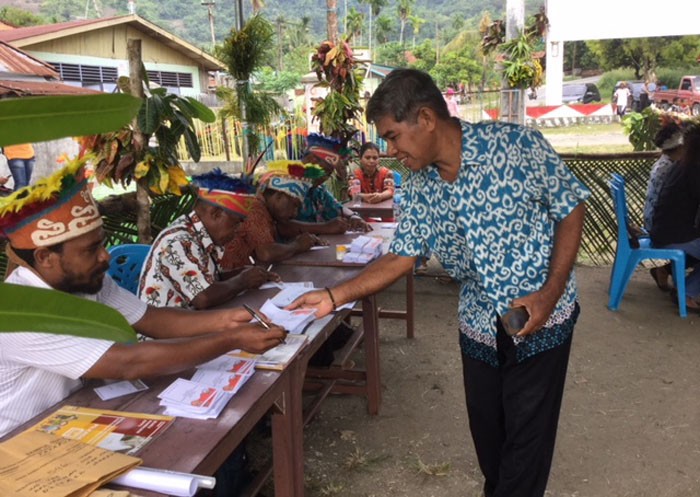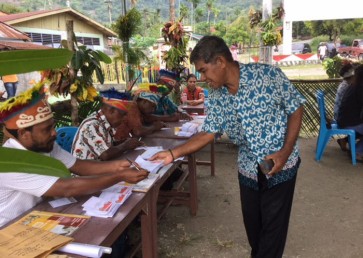Popular Reads
Top Results
Can't find what you're looking for?
View all search resultsPopular Reads
Top Results
Can't find what you're looking for?
View all search resultsIndonesia plans to keep direct elections in democratically ‘mature’ provinces. Papua may be left out.
Indonesias 416 regencies and 98 municipalities have one thing in common: They hold direct elections to pick their local leaders. But the government has indicated that that might be about to change.
Change text size
Gift Premium Articles
to Anyone
A
cross its more than 17,000 islands, Indonesia is divided into 34 provinces, consisting of 416 regencies and 98 municipalities, ranging from Surabaya with more than 2.8 million residents to Tambrauw regency in Papua with only around 6,300.
With the exception of the administrative municipalities of Jakarta and the special region of Yogyakarta, where the governorship is an inherited office, all these provinces, regencies and municipalities have one thing in common: They hold direct regional elections to pick their local leaders for five-year terms. The government has indicated that that might be about to change.
One of Home Minister Tito Karnavian’s many suggestions to "evaluate" direct regional elections made over the past few weeks is an "asymmetrical" approach, in which some regions hold direct elections, while others, particularly conflict-prone ones such as Papua, do not.
“With direct regional elections, besides the potential of conflict in some regions with shootouts happening between tribes, identity politics is also on the rise,” Tito said on Monday. “Maybe the evaluation will find that [we should hold] asymmetrical regional elections.”
He added that he had asked Statistics Indonesia (BPS) to create a "democratic maturity index" to indicate regions in which the potential drawbacks of direct regional elections outweigh whatever benefits they might bring.
“We should look at which regions are ready and which are not,” he said. “In big cities [voters] may be ready, so we will carry out [direct regional elections]. But in other regions with a low index, maybe because the level of [political savvy] among the public is still low, resulting in candidates’ programs not being understood, we can perhaps hold elections in another form.”
While it remains unclear what exactly Tito’s “maturity index” would measure, state agencies have already devised a few indicators that could be used to evaluate the quality of democracy in regions as well as how vulnerable a particular region is to problems when holding elections.


















